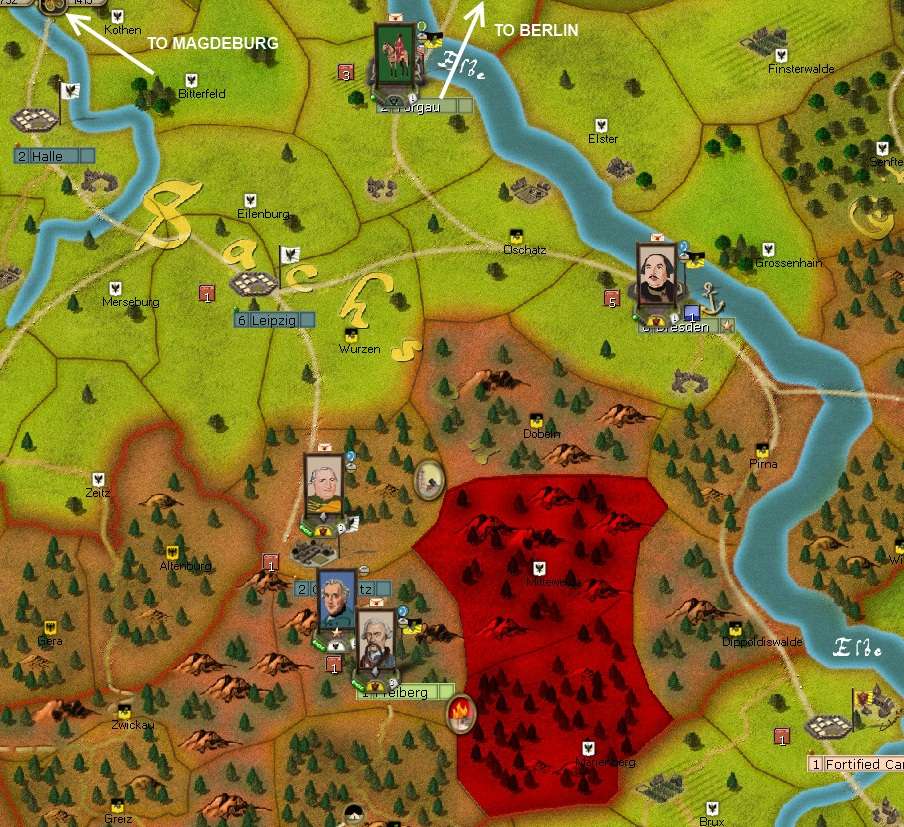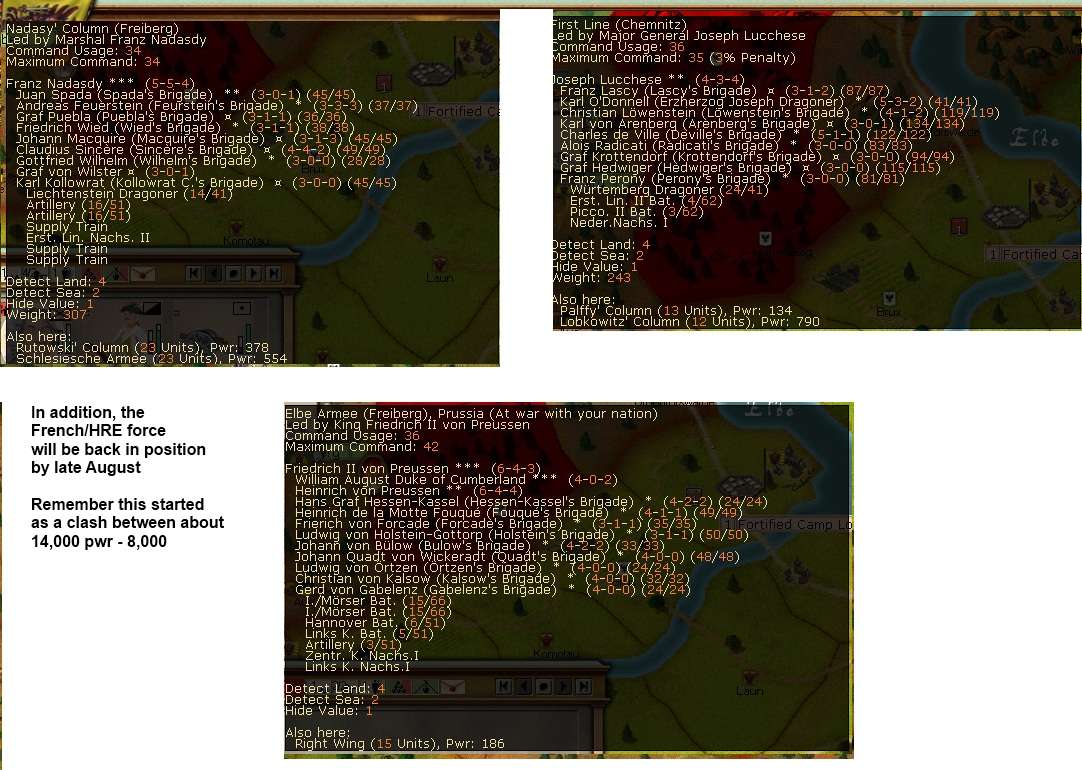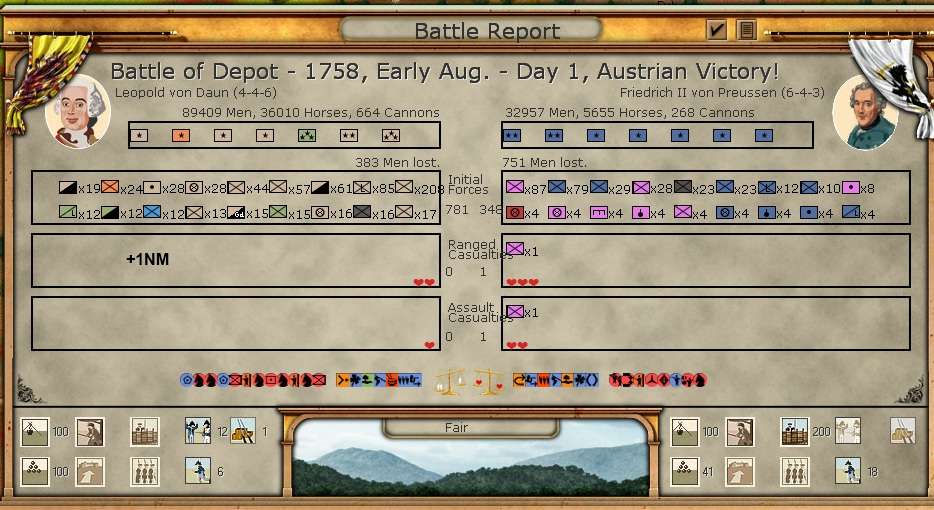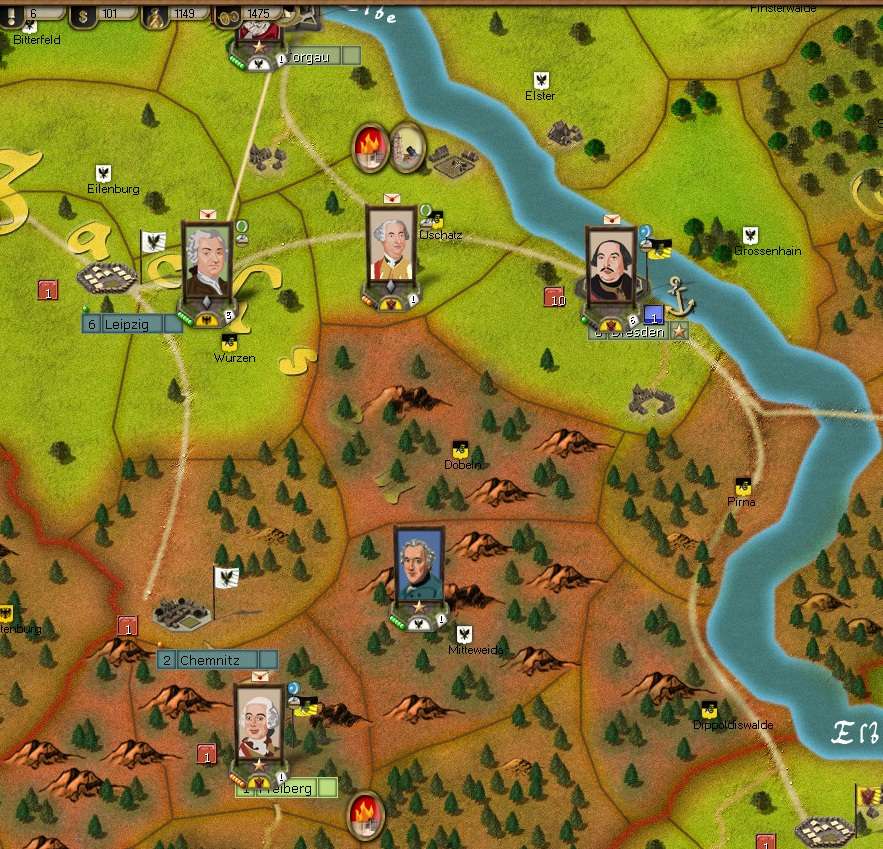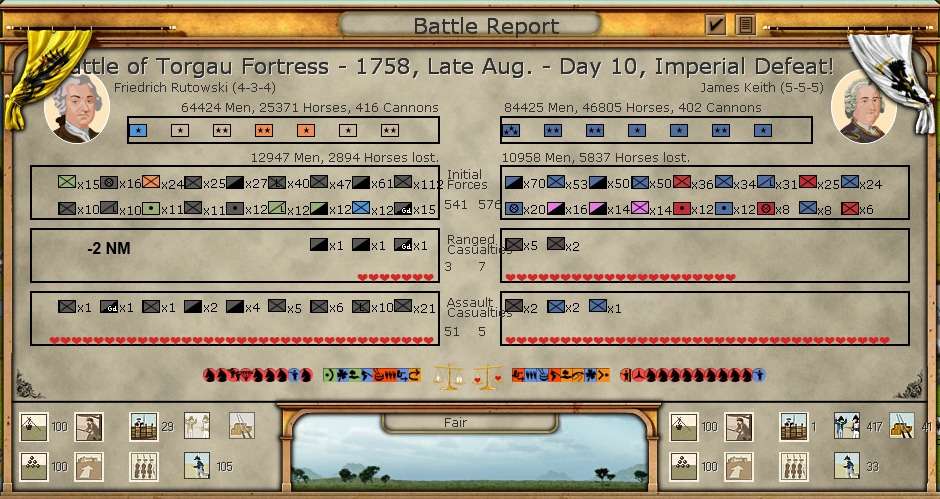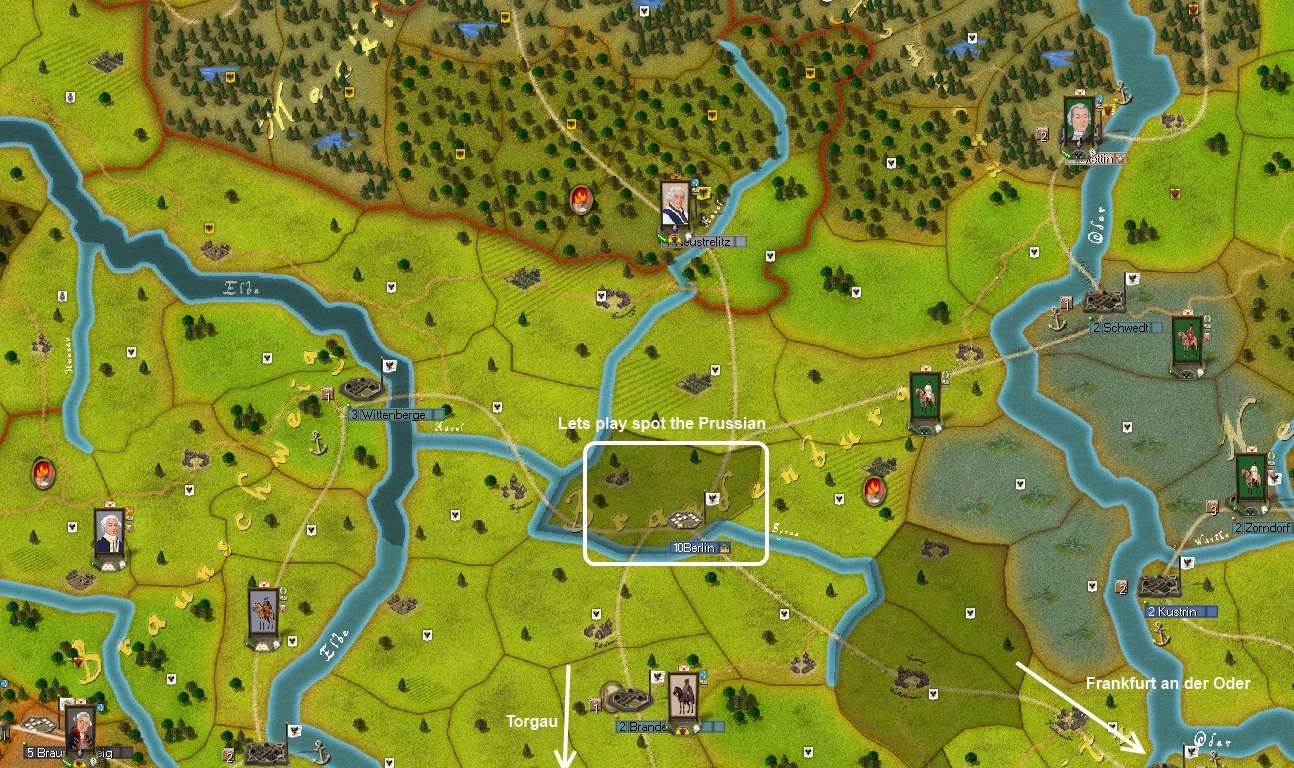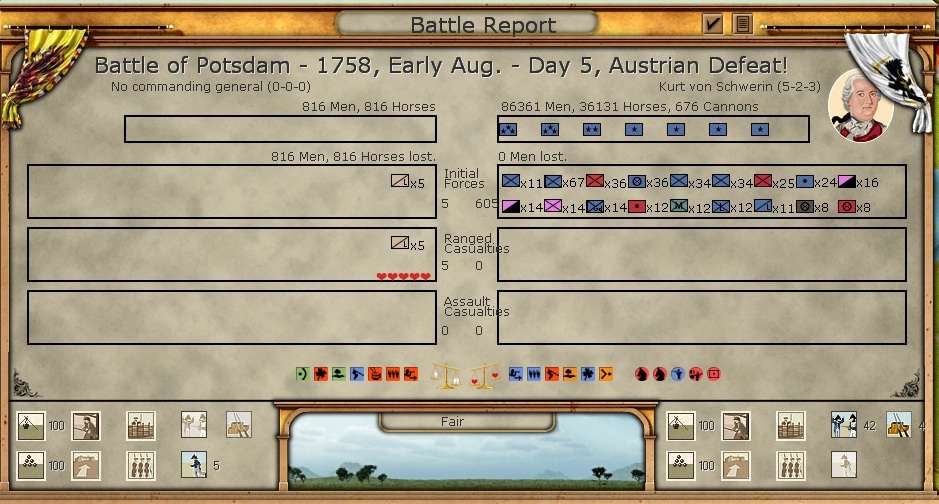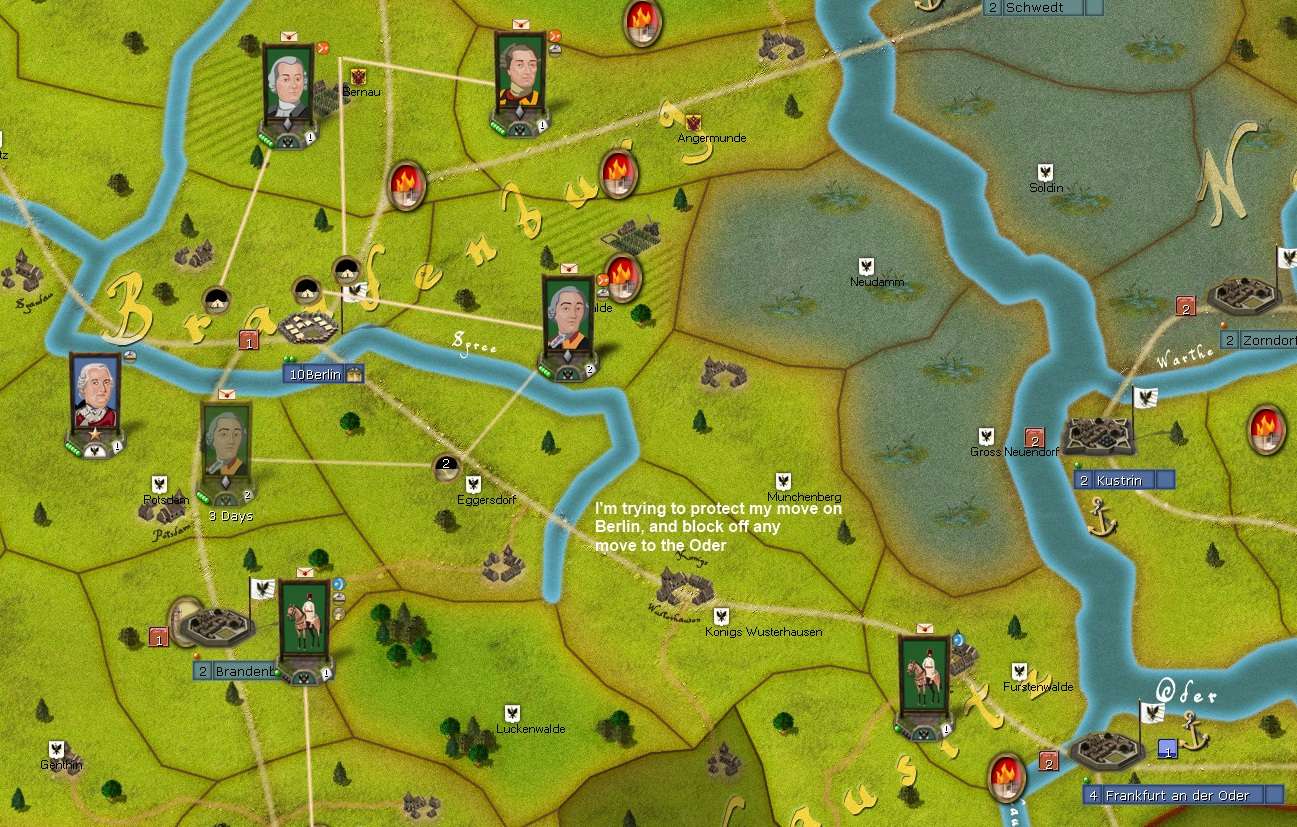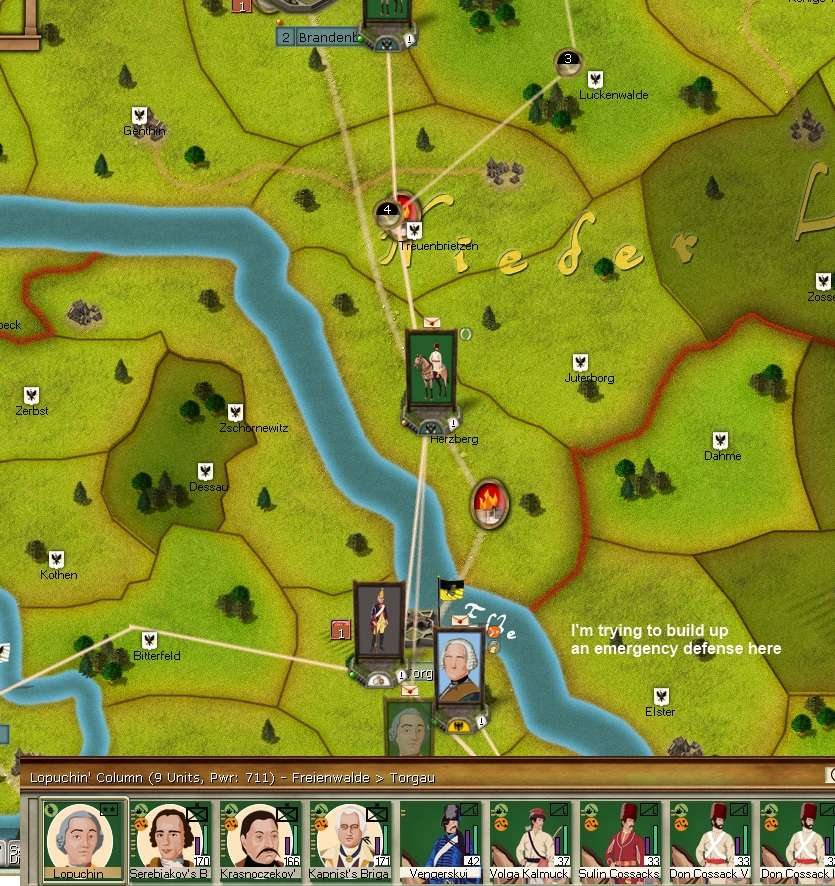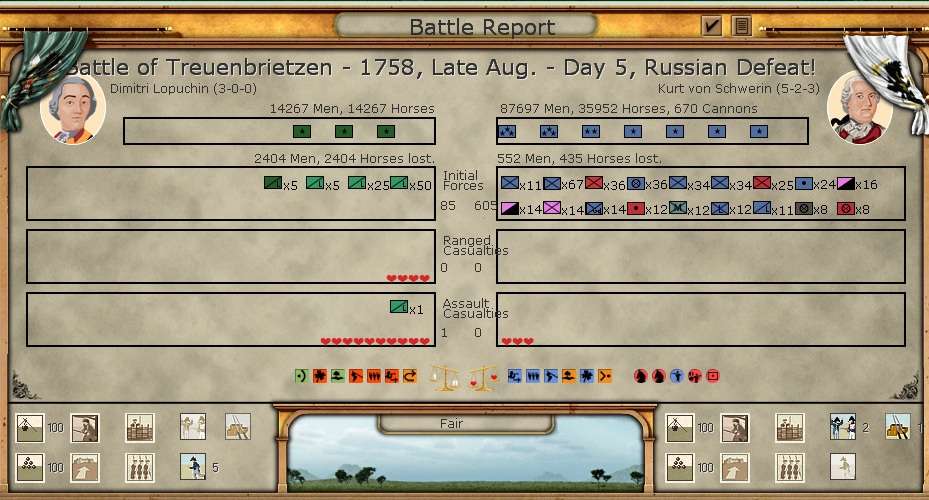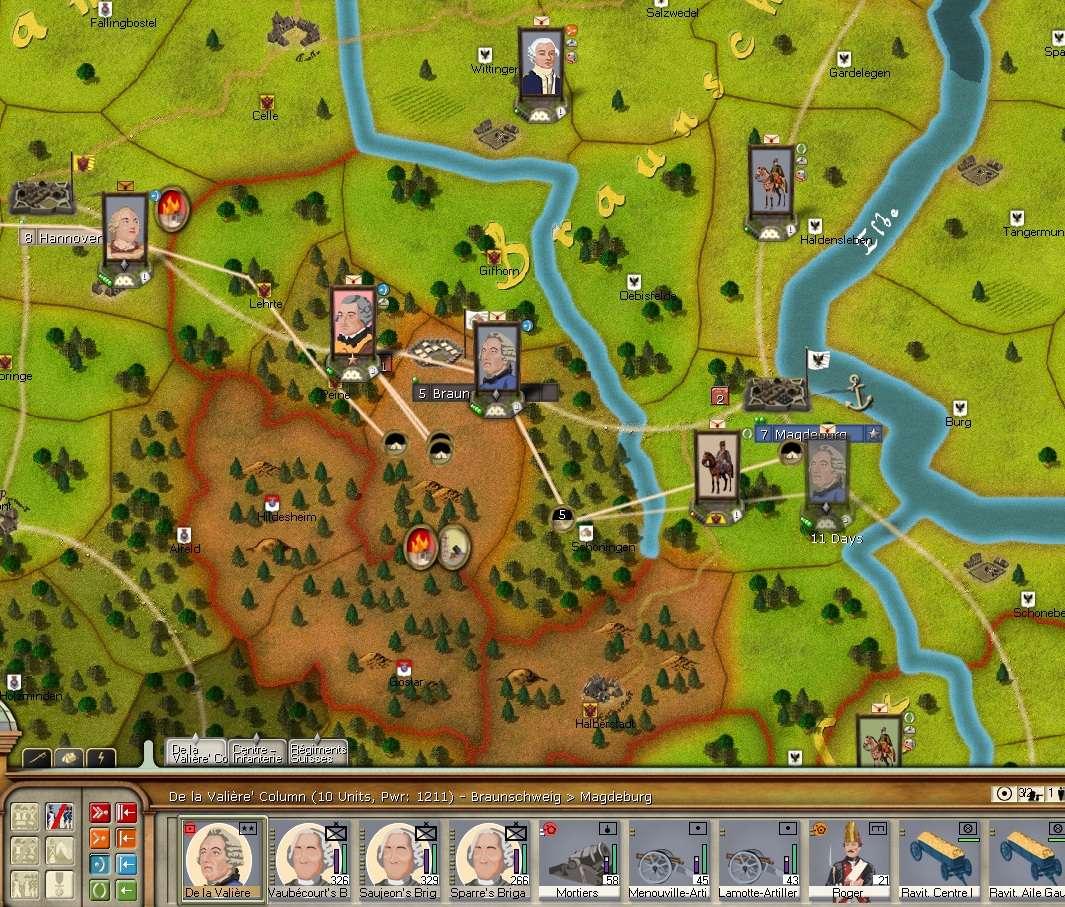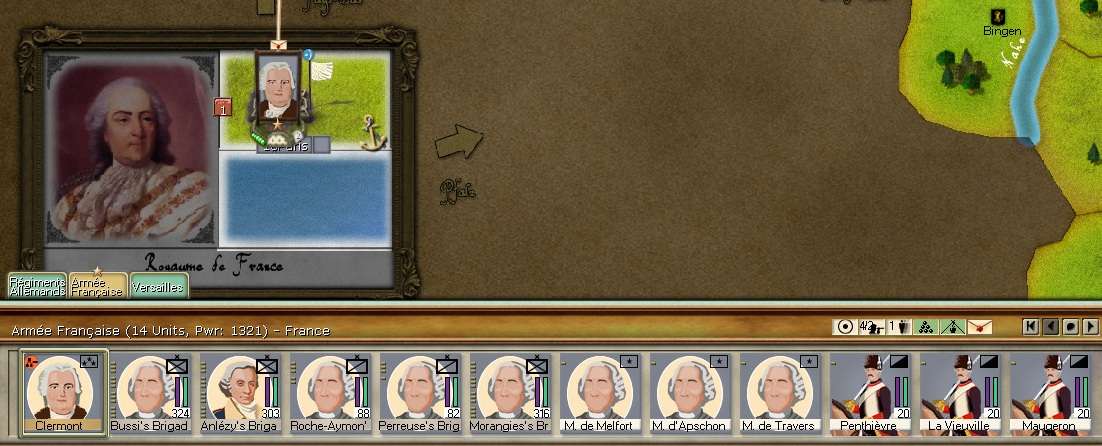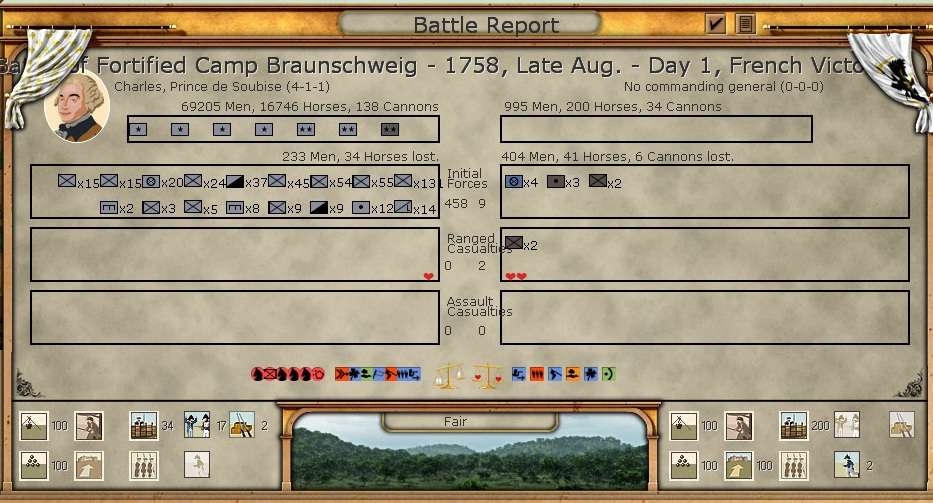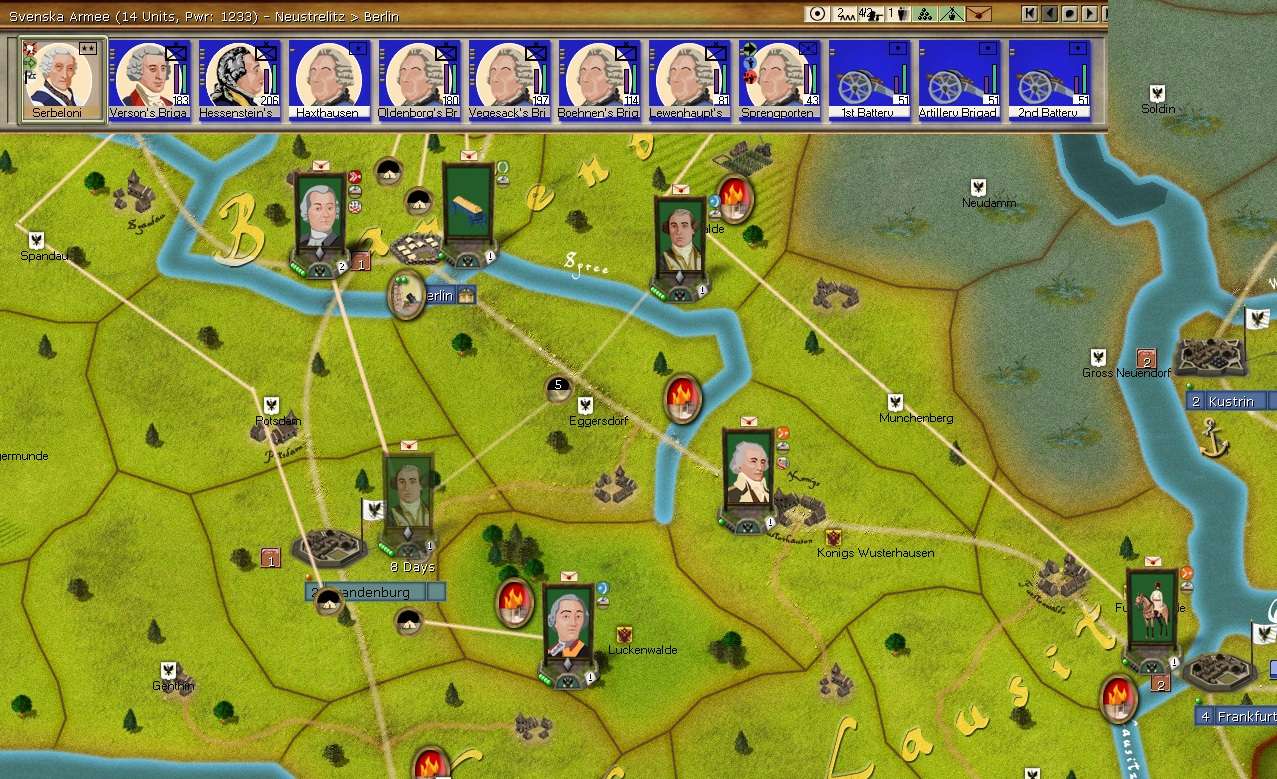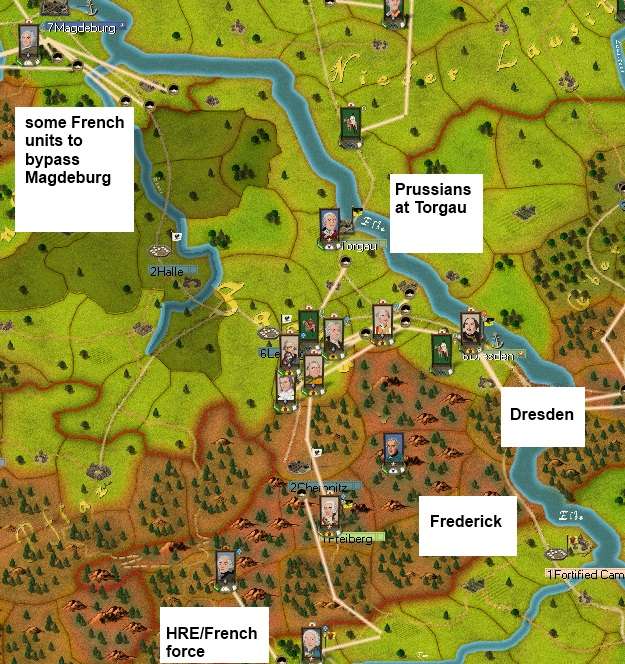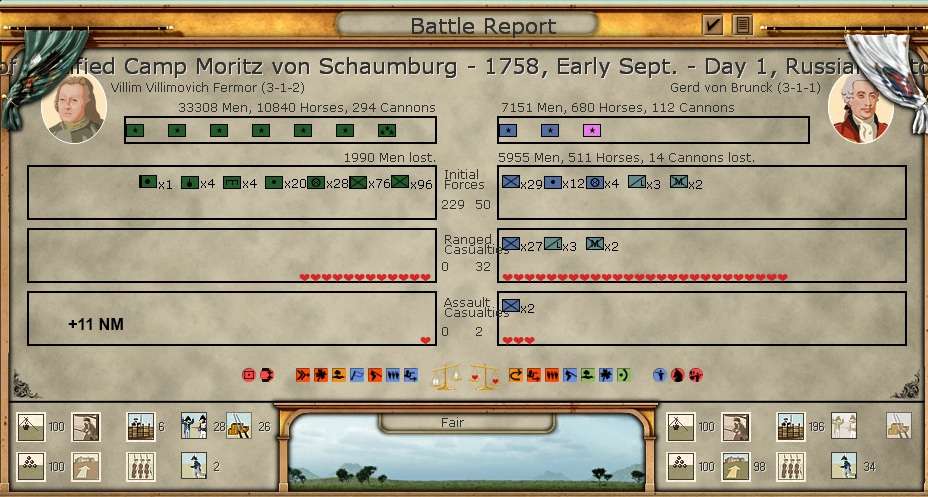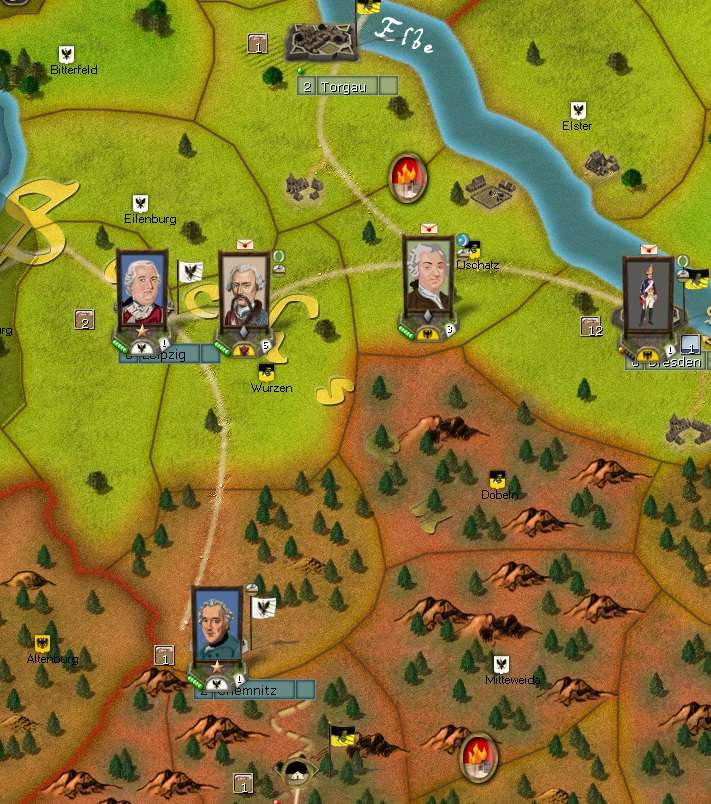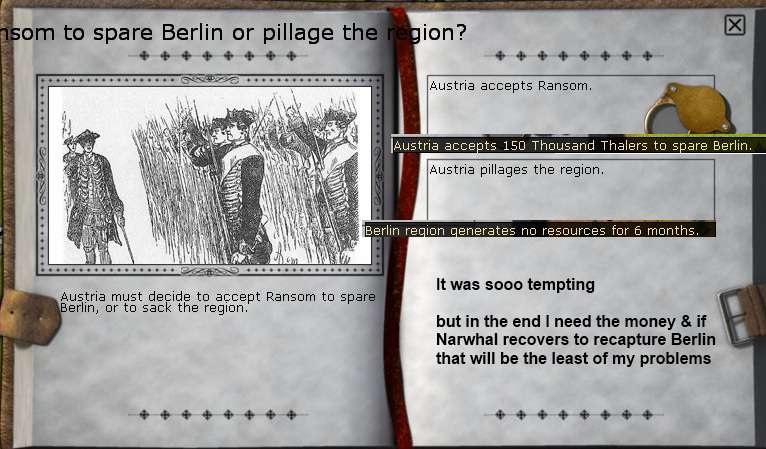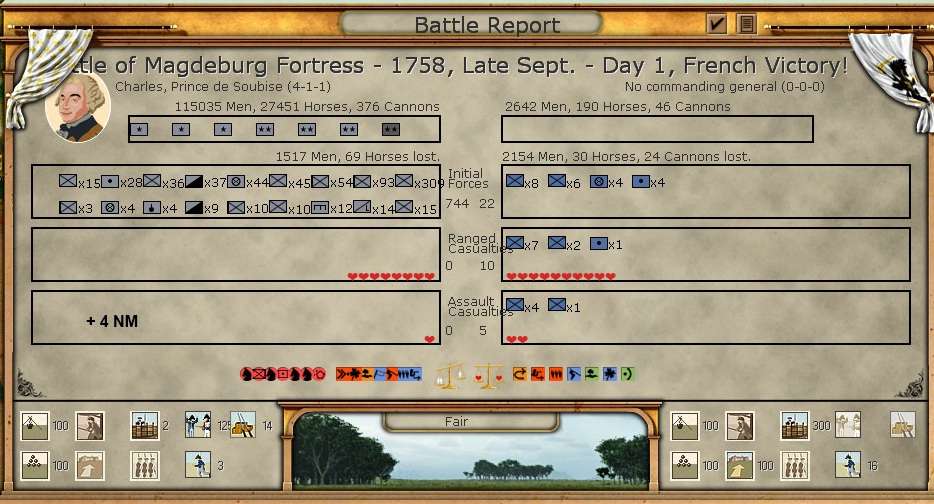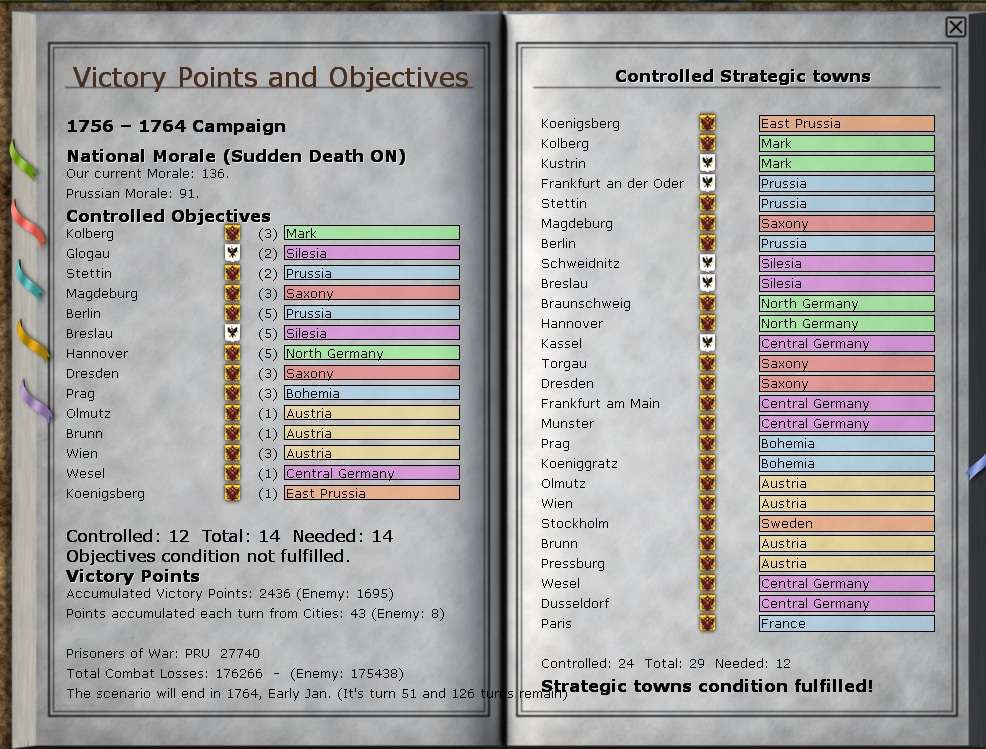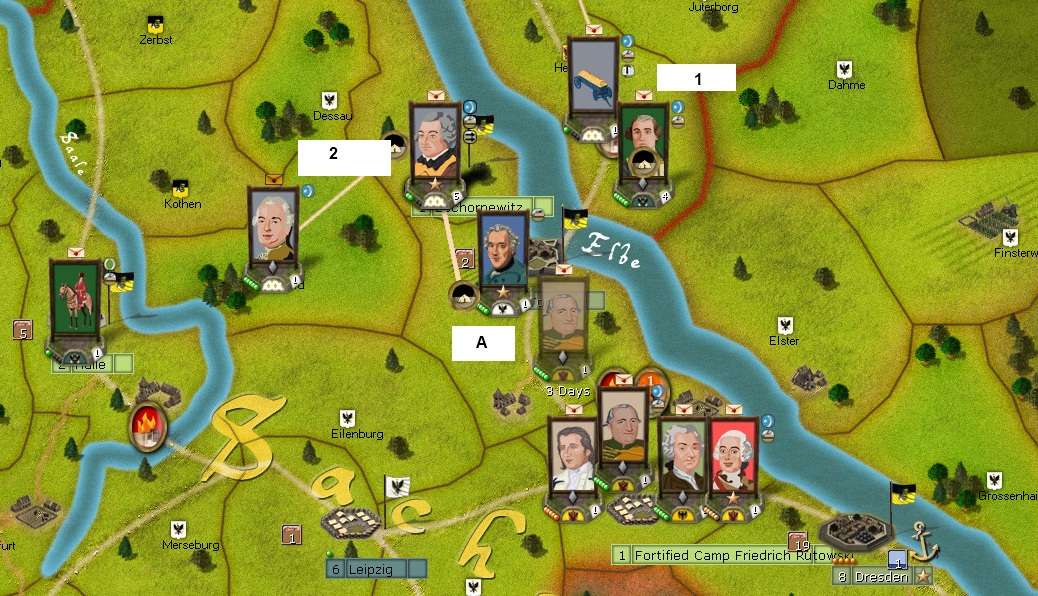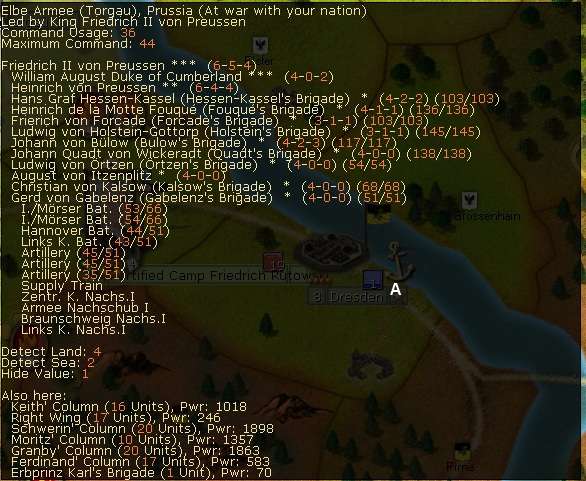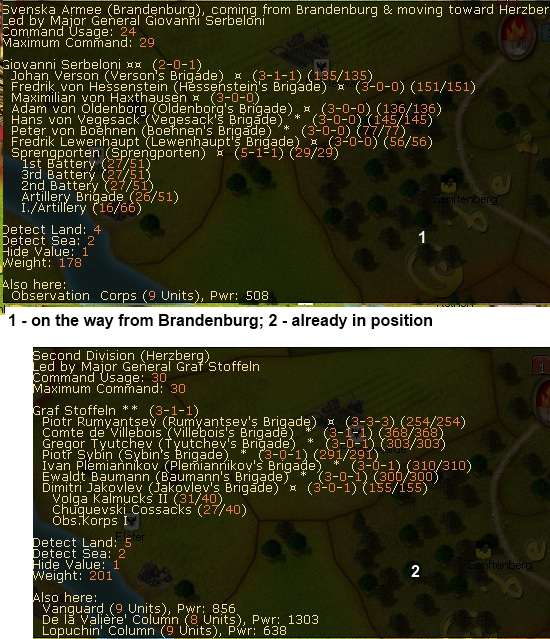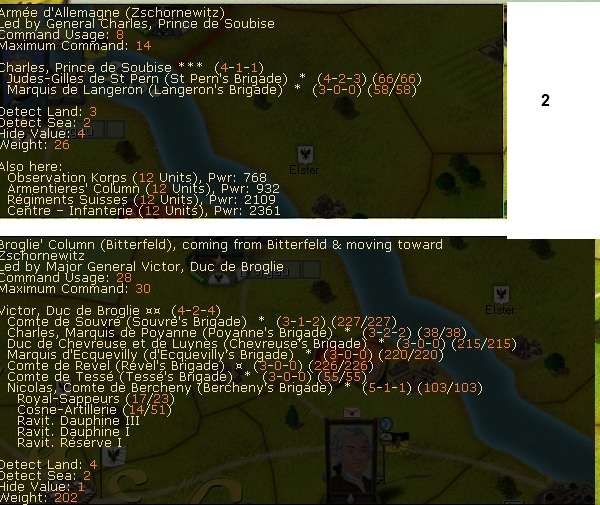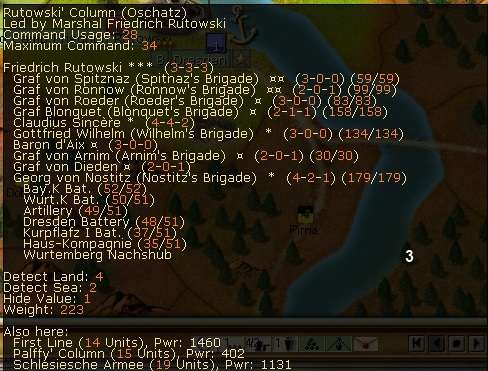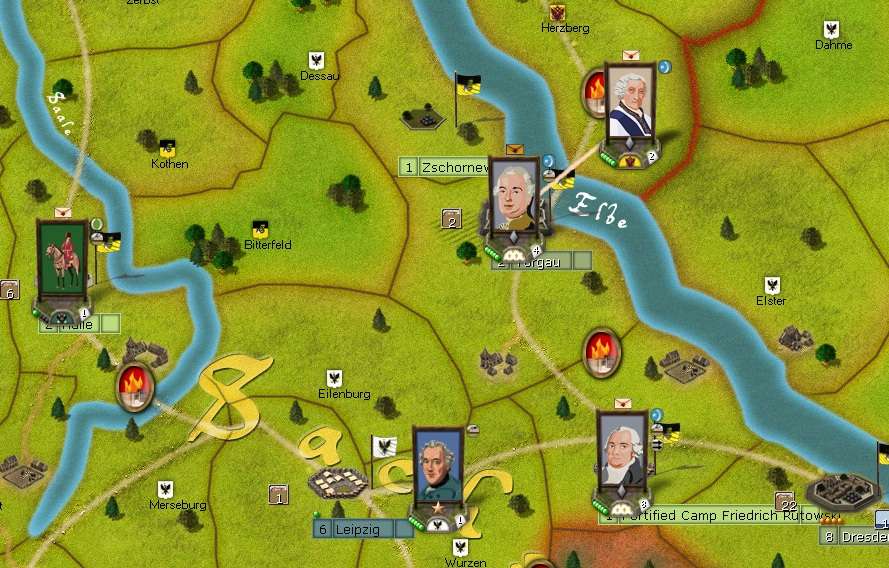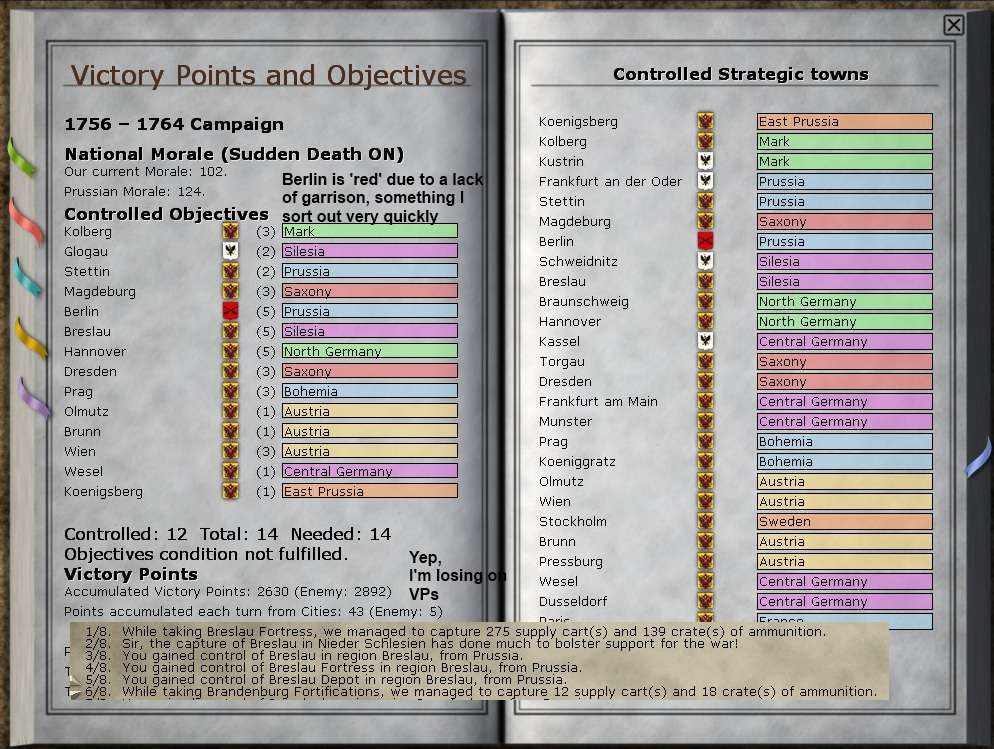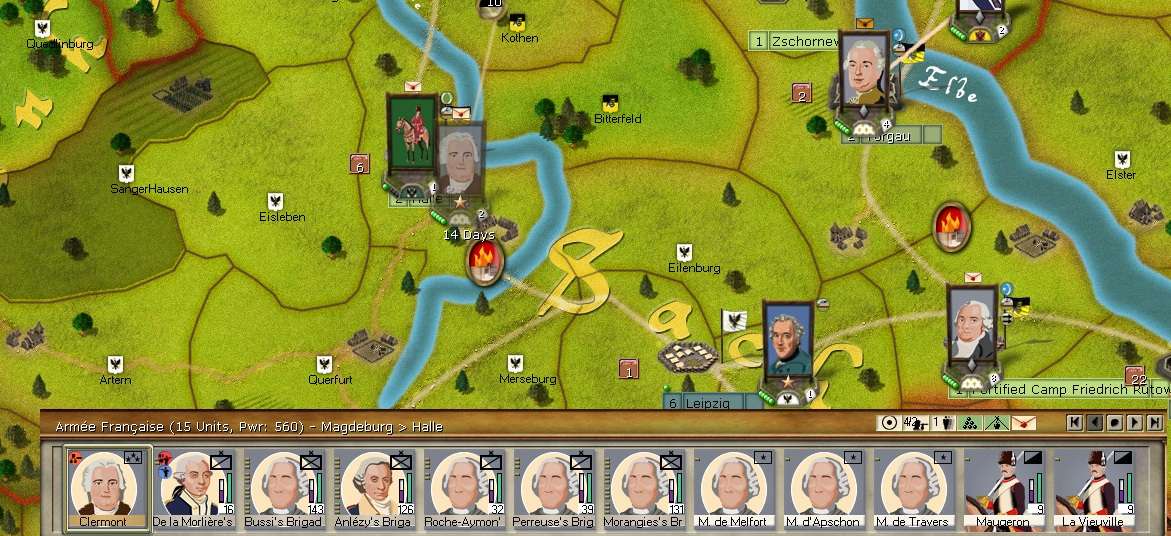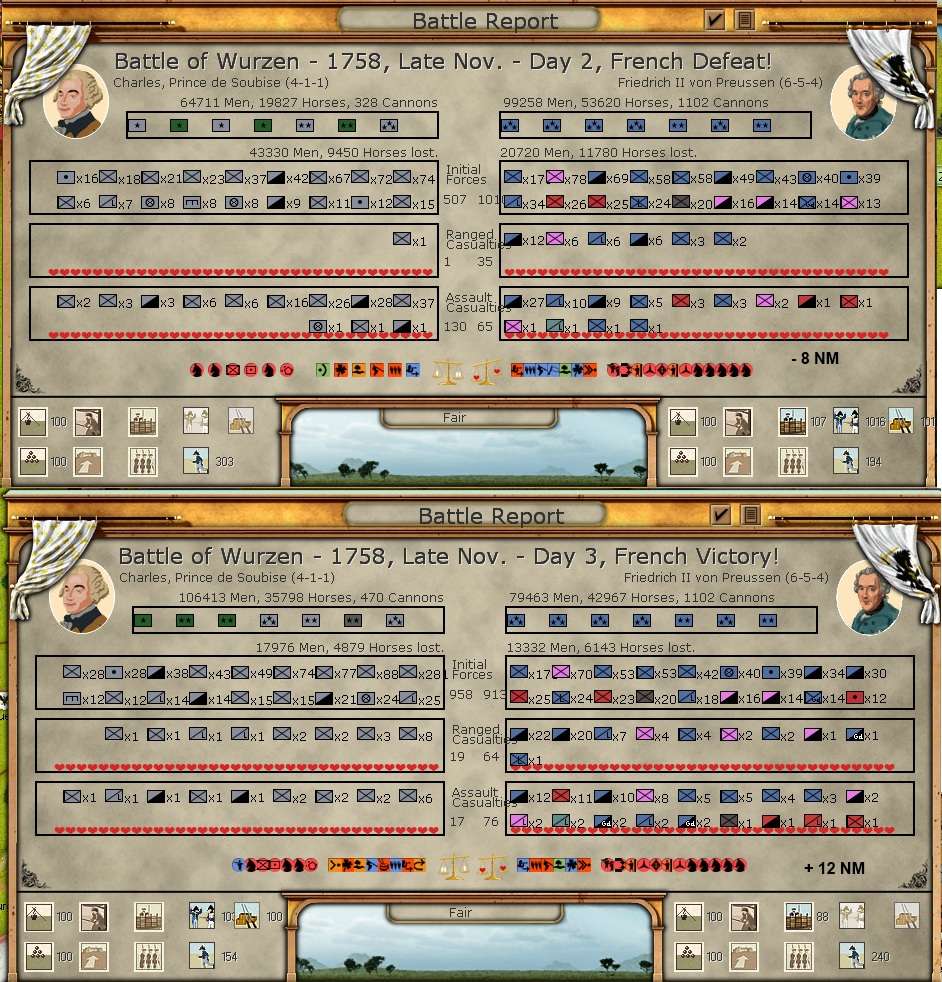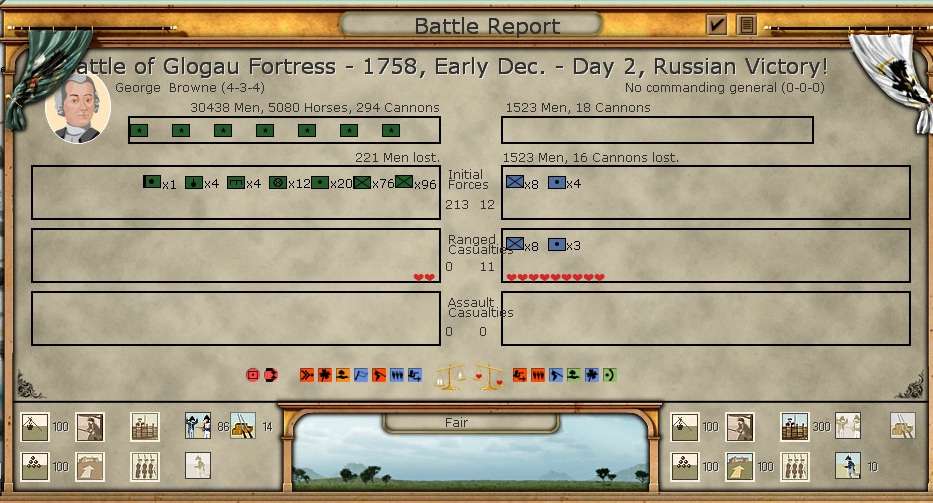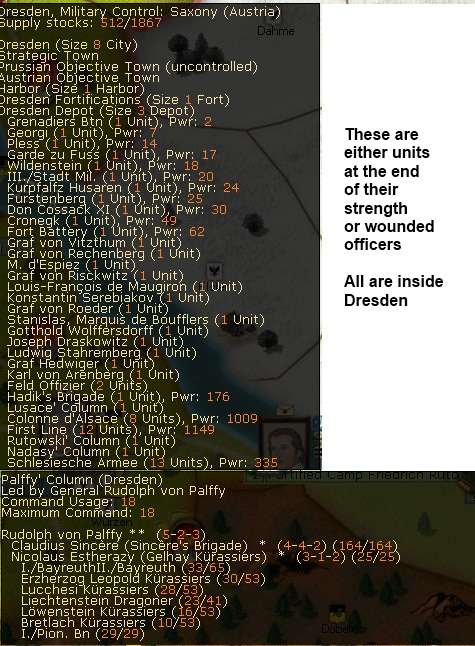OK, now a long point - I am not going to waste any surprises now. [There are still a couple left, I believe].
After the total fiasco with the surrender of Saxony event, I decided to change my "usual" strategy in three ways :
1. No creation of "megaarmies", but instead armies on each front. As you might remember, I usually play in the two previous RoP AAR with one front completely without defense, one front with all my troops to maximise my inner line advantage. I thought that this strategy was sustainable, because up to that game Loki100 was extremely conservative, and would not attack except with crushingly more numbers. Also, this was an attempt to "answer" to a Loki100 comment in mail on whether Prussia could win with a more "balanced" strategy
2. A more laid back approach, i.e. no attack. You might remember that I was an extremely aggressive player ; in this game I decided to be more reactive. I had noticed that in many of my games, my attacks were numerous but not so successful ; I was much better in counter-attacks - when trying to cut the enemy supply line especially. This was also due to the fact that I know there were a awful lot of Austrians out there, since I killed none in the opening months of the game.
3. No attempt to stop the Prussian at Königsberg, instead bringing these troops in main Prussia. Which was stupid, since I was not planning to attack there anyway.
This was a complete fiasco, as you can see.
1. Loki100 had decided to be much more aggresive itself, and while my "new" strategy would have worked in an earlier game, it did not anymore. Thus, insteand of being 1:1 on one front, I was 1:2 on both fronts, not good. At all.
2. I let Loki100 seize the initiative, and also attack in good ordders. While my attacks were not so efficient in the previous games, I believe unbalanced my opponent and also made his later attack less efficient (as his organisation was weakened due to the need to answer to "contagencies" earlier). In this game, Loki100 had all the time in the world to organise the "perfect attack".
Moreover, Loki100 did something completely new to me : instead of concentrating all his forces in the same province, he spreads out his corps in 2 or 3 neighbouring region. While it makes battle slightly more risky for him, it also means that I could not do anymore one of my personal favorites : going BEHIND the enemy line, by passing one region away from the enemy, to cut his supplies by taking a city "behind" him, ideally just before - or during winter. As you can see, that's what I did a lot of time in my WiA or ROP game - see how I destroyed Dearborn's force next to Montréal in the
War of 1812 (June/July 1813) for the latest and "purest" instances, but also my attack on Trois-Rivières in the
French and Indian War, or well, my method against Baris in
Learning from Prussia to take back Saxony, or lift the siege of Kassel,or to destroy the Swedes. While it is not in the AAR, during "The First Global War" game, I anniliated the complete French army (albeit with a significant manpower bonus due to the bug) by going around Hannover which was under French control in the beginning of winter, and taking Minden (with supplies from Bremen) and then just sit there while the French in Hannover starved. In the same game, I chased the Austrians from Saxony which was under their control by taking Dresden "behind" them. I also did that in a few other game versus Loki100 that were not AARed, so Loki100 had to find a counter.
With Loki100's supporting corp strategy, this method, while not dead, is not the "I-Win-Button" anymore.
3. The experience of the previous interrupted game told me it was OK to abandon Königsberg (the siege took 18 months, and Kolberg had changed hands 2 turns before we stopped that game), but Loki100 had also prepared a new strategy in this regard, and my fortress went bust at an alarming rate.
So basically, instead of fighting a fairly defensive player with a massive army but easy to cut from supply, I fought a aggressive and methodical player with a brand new strategy that looked like a cuirass from me - and a menacing horde from the East coming to me at an alarming rate. Loki100 now has a good balance between offense and defense and is in my opinion not a "newbie" anymore - as he was in his very first WiA game against me on AAR.
In addition to this, I was unlucky a couple times :
- the siege of Stralsund (which was rational in my opinion, as we buffed up the Swedes by taking out the "bugged" Northerner trait) failed due to bad luck - first time a minor bug that happens from time to time (an hidden unit sitting OUTSIDE a fortress under siege when the opponent is in defensive posture will cancel the siege), the second time before I had typhus the very turn I was going to assault !
- the Austrian siege of Torgau, over in one turn, which ruined my only occasion to use my "traditionnal" method and attack Dresden.
- Loki100 attack on my forces of Leipzig at the very turn I decided to change my strategy and thus was switching my commanders...
More detail on individual questions or remarks in the following post.
 o) Prussian elements lost to Austria's seven. To put it another way, the first battle of this update saw the Prussian's fielding 369 elements. One third of that force has ceased to exist, and it's a fair bet that the rest is looking pretty battered.
o) Prussian elements lost to Austria's seven. To put it another way, the first battle of this update saw the Prussian's fielding 369 elements. One third of that force has ceased to exist, and it's a fair bet that the rest is looking pretty battered.

